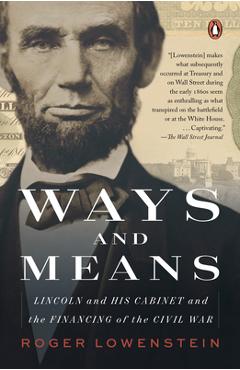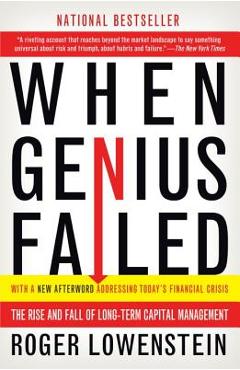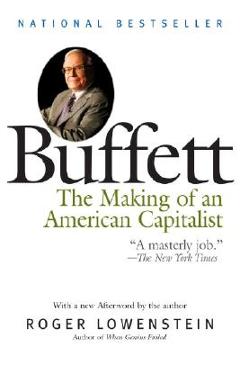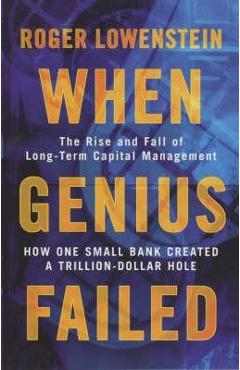Ways and Means: Lincoln and His Cabinet and the Financing of the Civil War - Roger Lowenstein

Detalii Ways and Means: Lincoln and
libris.ro
111.6 Lei
124 Lei
History
Roger Lowenstein
Ways and Means: Lincoln and - Disponibil la libris.ro
Pe YEO găsești Ways and Means: Lincoln and de la Roger Lowenstein, în categoria History.
Indiferent de nevoile tale, Ways and Means: Lincoln and His Cabinet and the Financing of the Civil War - Roger Lowenstein din categoria History îți poate aduce un echilibru perfect între calitate și preț, cu avantaje practice și moderne.
Preț: 111.6 Lei
Caracteristicile produsului Ways and Means: Lincoln and
- Brand: Roger Lowenstein
- Categoria: History
- Magazin: libris.ro
- Ultima actualizare: 28-10-2025 01:22:05
Comandă Ways and Means: Lincoln and Online, Simplu și Rapid
Prin intermediul platformei YEO, poți comanda Ways and Means: Lincoln and de la libris.ro rapid și în siguranță. Bucură-te de o experiență de cumpărături online optimizată și descoperă cele mai bune oferte actualizate constant.
Descriere magazin:
Captivating . . . [Lowenstein] makes what subsequently occurred at Treasury and on Wall Street during the early 1860s seem as enthralling as what transpired on the battlefield or at the White House. --Harold Holzer, Wall Street Journal Ways and Means, an account of the Union\'s financial policies, examines a subject long overshadowed by military narratives . . . Lowenstein is a lucid stylist, able to explain financial matters to readers who lack specialized knowledge. --Eric Foner, New York Times Book Review From renowned journalist and master storyteller Roger Lowenstein, a revelatory financial investigation into how Lincoln and his administration used the funding of the Civil War as the catalyst to centralize the government and accomplish the most far-reaching reform in the country\'s history Upon his election to the presidency, Abraham Lincoln inherited a country in crisis. Even before the Confederacy\'s secession, the United States Treasury had run out of money. The government had no authority to raise taxes, no federal bank, no currency. But amid unprecedented troubles Lincoln saw opportunity--the chance to legislate in the centralizing spirit of the more perfect union that had first drawn him to politics. With Lincoln at the helm, the United States would now govern for its people: it would enact laws, establish a currency, raise armies, underwrite transportation and higher education, assist farmers, and impose taxes for them. Lincoln believed this agenda would foster the economic opportunity he had always sought for upwardly striving Americans, and which he would seek in particular for enslaved Black Americans. Salmon Chase, Lincoln\'s vanquished rival and his new secretary of the Treasury, waged war on the financial front, levying taxes and marketing bonds while desperately battling to contain wartime inflation. And while the Union and Rebel armies fought increasingly savage battles, the Republican-led Congress enacted a blizzard of legislation that made the government, for the first time, a powerful presence in the lives of ordinary Americans. The impact was revolutionary. The activist 37th Congress legislated for homesteads and a transcontinental railroad and involved the federal government in education, agriculture, and eventually immigration policy. It established a progressive income tax and created the greenback--paper money. While the Union became self-sustaining, the South plunged into financial free fall, having failed to leverage

Produse asemănătoare

Ways and Means: Lincoln and His Cabinet and the Financing of the Civil War - Roger Lowenstein
![]() libris.ro
libris.ro
Actualizat in 28/10/2025
111.6 Lei
Produse marca Roger Lowenstein

When Genius Failed: The Rise and Fall of Long-Term Capital Management - Roger Lowenstein
![]() libris.ro
libris.ro
Actualizat in 28/10/2025
122.76 Lei

Ways and Means: Lincoln and His Cabinet and the Financing of the Civil War - Roger Lowenstein
![]() libris.ro
libris.ro
Actualizat in 28/10/2025
111.6 Lei

America\'s Bank: The Epic Struggle to Create the Federal Reserve - Roger Lowenstein
![]() libris.ro
libris.ro
Actualizat in 28/10/2025
106.02 Lei

Buffett: The Making of an American Capitalist - Roger Lowenstein
![]() libris.ro
libris.ro
Actualizat in 28/10/2025
133.92 Lei

Buffett: The Making of an American Capitalist - Roger Lowenstein
![]() libris.ro
libris.ro
Actualizat in 10/11/2023
75 Lei
